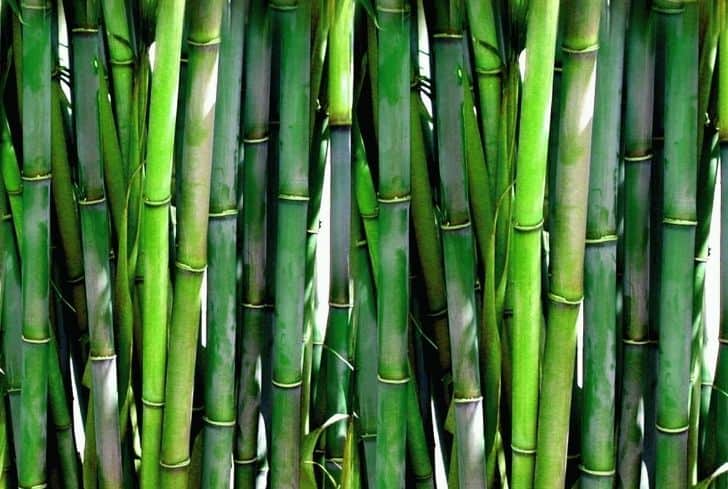Bamboo has had a 5% annual growth rate in demand since 2019, and that’s because of its increasing utility areas. Bamboo products are great for every industry – domestic, pharmaceutical, construction; you name it!
It’s so versatile, durable, appeals to the eyes, and of course, very affordable. Bamboo is also one of the fastest-growing plants globally, growing at the rate of almost 48 inches daily.
So, since we can all agree that we use bamboo products in every industry, it means we need multiple ways to dispose of the items we don’t want anymore. Now, if you wonder if you can compost bamboo, then tote at the right place. In this blog post, we’ll explore several compostable bamboo items.
Read: Can You Recycle Bamboo?
Enjoy!
Can You Compost Bamboo?
One of the more environmentally friendly ways to dispose of any item is to compost it if you can. However, before you even consider this as an option, you need to understand what it means and entails.
Composting is an excellent alternative to using store-bought fertilizer. It helps you provide your soil and plants with the nutrients they need without including some of the chemicals that are pretty common in inorganic fertilizer.
In addition, you can use kitchen waste from your home, so you don’t even need to spend money to create compost for your plants.
Now, here’s how to compost in a nutshell. First, you need a suitable space – it could be in your backyard. Then, you can use a bin or dig a pit where you’ll place all the compostable materials.
These materials include any kitchen waste that can break down fast, won’t release a pungent smell in the process, and won’t attract pests to your yard.
So, can you compost bamboo? Certainly! Bamboo is a natural resource; it’s a type of plant. Natural resources that haven’t been fortified with other chemicals typically tend to be biodegradable, but some take much longer to break down than others.
However, bamboo isn’t one of those materials that take longer to break down. You can compost any material that’s completely made from bamboo. It takes about 6 months to compost bamboo. Once the first of the two steps in biodegradation is completed, the rest is a walk in the park.
You can hasten the process by cutting the bamboo item into smaller pieces. This will make the microorganisms that will feed on it find it easier to break it down. In addition, ensure that the compost pile has access to enough moisture, oxygen, and heat.
Not everyone has a compost pile or bin in their yard, and we mentioned earlier that composting is one of the ways to dispose of our waste. As such, composting is still an option for you if you aren’t into gardening.
Some communities provide compost bins for kitchen waste, and you can put your bamboo item in this bin when you’re ready to dispose of it.
Can You Compost Bamboo Clothes?
Clothing items are items we can’t do without. Fortunately, we have many options to choose from – there are both natural and synthetic fibers, and each has its appeal.
However, since bamboo clothes were reintroduced in 2001, they’ve fast become the preferred choice for several reasons. They’re sweat-resistant, very soft, create-free, so you won’t need to iron them, protect your body from UV radiation, among many others.
The best part is that they’re just like every other natural fabric, so they can come in an array of outfits – any color, shape, or design you want.
It’ll certainly not be surprising if the majority of your clothes are made from bamboo. Now, while they’re very durable, you’ll eventually have to let go of them. Growth is a part of the human experience, which means you’ll outgrow your clothes at some points.
So, since you can compost bamboo, does that mean you can compost bamboo clothes too? But of course, you can!
Again, when you want to compost your bamboo clothes, you have to start by removing the non-compostable parts like the zips, buttons, labels if there are any, collar paddings, and other parts that won’t break down fast.
Next, cut the outfit into smaller pieces. It makes it easier for microorganisms to act on them and break them down faster. You can use a pair of scissors to cut the clothes into one or two-inch strips.
Now, while composting clothes, it’s best to place them where there’s moisture in your compost bin. For instance, if you already have some materials that have started decomposing, they’ll have some moisture in them, and you can place the shredded clothing there.
Alternatively, you could soak the shredded pieces in some water before decomposing them. You see, moisture is an integral part of composting – it speeds up the process.
Can You Compost Bamboo Toothbrushes?
Healthcare specialists recommend that we use our brushes for a maximum of three months before replacing them. As such, the average person uses four toothbrushes every year.
That’s quite a number, which is why it’s important to buy environmentally friendly toothbrushes.
Bamboo toothbrushes are now pretty common these days. They’re also the better choice, compared to plastic alternatives. So, if you buy bamboo toothbrushes, you’ll find it easiest to dispose of them correctly.
In fact, these toothbrushes are 100% biodegradable – from the bristles down to the handle. So now, if you’re wondering if you can compost bamboo toothbrushes, then you certainly can!
However, since the toothbrush is made purely from bamboo, it’ll certainly take much longer to decompose because it’s just as strong as wood.
But again, the process is possible and straightforward. You can start by cutting it into small pieces, soaking it in some water for about five to ten minutes, and adding the pieces to the wettest part of your compost pile.
Under the right conditions, the toothbrushes will decompose in 3 to 4 months.
On the other hand, you may not own a compost pile. Here, you won’t need to soak the toothbrushes in water after cutting them into pieces. Instead, you can just place the pieces with the other items you want to put in your community’s compost bin.
Can You Compost Bamboo Chopsticks?
Chopsticks are an integral part of the Asian culture, so if you like Asian meals, you absolutely can’t run away from them. Whether you’re ordering takeout from or eating at an Asian restaurant, you need chopsticks for some meals.
Now, if you’re the takeout type, then you’re likely acquiring an interesting collection of chopsticks. Most chopsticks are made from wood or bamboo, so disposing of them will be a walk in the park.
If your chopsticks are made from bamboo, then you can store and compost them at regular intervals. You’re storing them because you’ll likely get more takeout pretty often, and you may not want to visit your compost pile to compost them repeatedly.
So, you can start by getting a bin or bowl to store the chopsticks. When you’ve amassed enough, then you can get to composting!
As always, with bamboo or wooden products, you can get them to decompose much faster by cutting them into smaller pieces and soaking them in water for a while. Then, ensure you please chopsticks where there’s enough moisture and heat. In about six months, they’ll have broken down completely.
Is Bamboo Cutlery Compostable?
Another aspect is where bamboo is quickly taking over in the kitchen. You can find bamboo products virtually everywhere – from the cabinets to the countertop down to the bowls and cutlery we use to eat.
Interestingly, they come in an array of colors, sizes, and uses. So, you don’t have to be limited to the typical bamboo color. You’ll also feel better when it’s time to dispose of the cutlery set.
You can compost it by following the prices for other bamboo and wooden materials. Then, simply cut them into smaller pieces, soak them in some water, and place them in the part of your compost pile that has the most moisture.
How Long Does Bamboo Take to Decompose?
This is a very valid question, especially if you’re looking to resort to composting as one of your waste disposal methods. So, how long does it take bamboo to decompose?
Typically, for any material to decompose fast, it needs enough water, oxygen, heat, and of course, microorganisms. So, once it has those factors, if it’s biodegradable, it’ll break down fast.
Now, how long does it take Bamboo to break down? Well, it depends on the added materials, the type of bamboo product it is, and how long is manufacturing process was.
However, the maximum period bamboo needs to decompose is 3 years – this means that even the strongest bamboo products will break down completely below this period lapses.
What Can I Do With Bamboo Waste?
Now that you know just how important bamboo has become in the manufacturing and construction industry, you must also know that we can’t do without bamboo. You likely own at least one bamboo item, so knowing how to dispose of bamboo waste isn’t wasted knowledge.
Well, here are some of the things you can do with bamboo waste:
1. Compost it
This is one of your best options when you want to dispose of bamboo waste. It’s both beneficial to you and your plants and soil. It’ll have served you well, and it’ll also provide your plants with the nutrients they need.
All you have to do is cut the bamboo products into smaller pieces, soak them in some water, and place them with the rest of your compost materials.
Alternatively, if you don’t have a compost pile, you can put the bamboo waste in your community’s own.
2. Donate it
Another option you have is it donate the bamboo products to anyone who might need them. You can start by asking people close to you if they need the products you don’t want anymore. But of course, you must ensure that they’re still in a presentable and useful condition.
There are also non-profit organizations that you could donate these products to. But again, they have to be in excellent condition.
You could also give them to the homeless people in your area.
3. Upcycle it
Finally, here’s a hack we’d all love! You can reuse the bamboo products you’ve decided to throw away. We bet you didn’t know you could get more uses out of them by repurposing them.
For instance, you could turn your bamboo placemats into a lampshade. Likewise, your bamboo bowls can become flower pots in your garden, bowls for holding fruits, and sewing kits, to name a few.
Conclusion
Bamboo is one of nature’s best gifts to us. We can use it to make virtually anything, and it would turn out wonderfully. It’s also awesome that it’s biodegradable and breaks down pretty fast, thereby eliminating the need to find environmentally friendly ways to dispose of the products.






